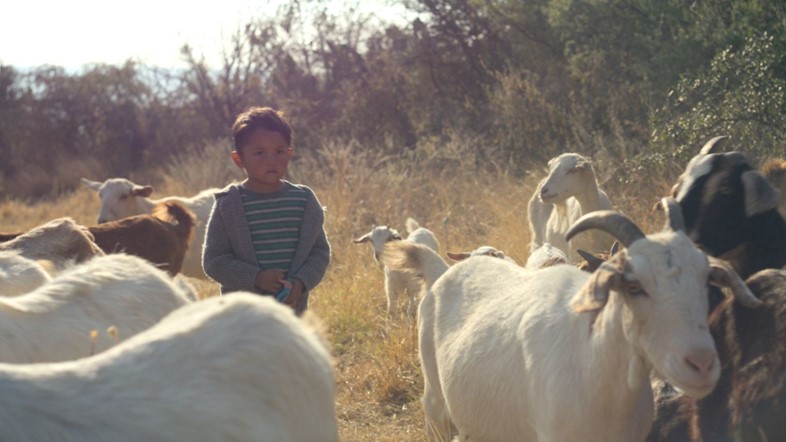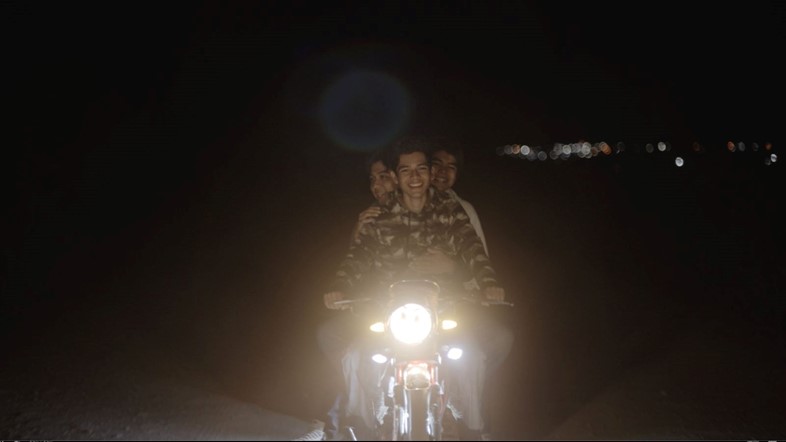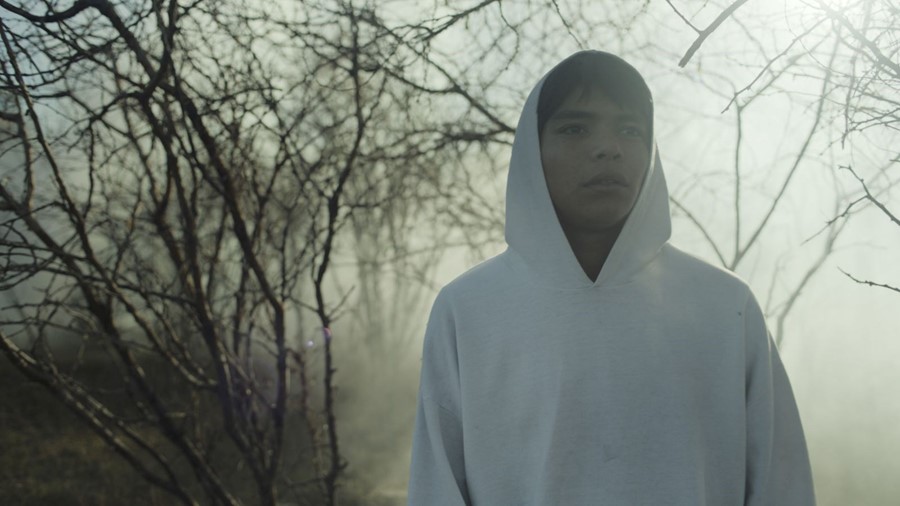Fernanda Valadez and Astrid Rondero’s tender new film examines the legacy of Mexican cartel violence, and one boy’s attempts to outrun the past
In Sujo, Mexican filmmakers Fernanda Valadez and Astrid Rondero tell a story about the legacy of violence left by the cartels where the violence sits mostly off-screen. Tender and hopeful, their film follows a boy forced into hiding at his aunt’s farmhouse when his dad, a sicario named Josue, is murdered by the drug gangs. When the cycle of violence that claimed his father’s life threatens to come for him, he takes off to Mexico City in search of a future he barely knows how to imagine.
“When we were writing the story someone actually told us, ‘The son of a sicario wanting to go to university, it sounds like science fiction!’” says Rondero. “That was painful to hear, but it really rang true. I said [to myself], ‘Of course, because in Mexico, we think it’s more natural that a boy that age will turn into a mass killer [than continue going to school].’ It’s like everything’s been turned upside down.”
Cartel-related violence is an ongoing tragedy in Mexico, where an estimated 30,000 people are killed each year in the battle to control the drug trade. “Incredibly we don’t talk about it all that much,” says Rondero. “We are all aware of the terrible toll the drug wars have had in our society, but it’s something we continue to look away from. I think sometimes [there’s a feeling] in big cities that this is something that happens to immigrants or to people at the border. We don’t want to [think] this violence is each time coming closer; it [touches] all parts of society and I guess we want to ignite conversation.”
Rondero met Valadez while studying at the National School of Film Arts in Mexico City, bringing her in as a script supervisor for her thesis project. They began working on a series of shorts that won recognition at the Ariel awards, Mexico’s equivalent to the Oscars, at which point you might expect producers to come calling with offers to develop a feature or direct TV episodes. But, says Valadez, this was at a moment in time when something like “five to eight per cent of films in Mexico were made by women, so we couldn’t afford to waste time waiting around”. The pair founded their own production company, and made the jump into feature filmmaking unaided.

Sujo grew directly out of the pair’s last project, Identifying Features, a harrowing story of migrant teens recruited into the cartels that became a breakout hit at Sundance in 2020. “[With that film] we were asking what would need to happen for a young man to commit terrible acts of violence,” says Rondero, “and with Sujo the question is the opposite. It’s what would it take for a boy to turn away from violence?
At the start of the film Sujo is eight, marked for death by the mob when his father carries out an execution on the wrong man. The boy’s aunt, Nemesia (Yadira Pérez), senses something’s up when she sees the late Josue, now a wandering shade, outside the front of her house, and her fears are confirmed when she finds his home burned down with a barrel of acid at its centre. She bargains for her nephew’s life with the local cartel boss, who agrees on the condition that Sujo never be seen in town again. “We made your father into water,” the man tells Sujo, “so there’s nothing to mourn.”

Years later we see Sujo, now a teen played by Juan Jesús Varela, as he and his cousins flirt with joining the cartels. Is he destined to become another crime statistic like his dad? A visit to his father’s chapel reveals a surprise eagle-eyed viewers may have spotted earlier: Sujo is played by the same man as his father. “We were always playing with the idea of destiny, that this boy is gonna become a sicario like his father,” says Valadez, adding that Sujo’s struggles are in a certain sense universal. “But we also wanted to say that there’s so much we don’t know about ourselves, and we’re all trying to figure out who we are from whatever place we can.”
Finally, Sujo makes his escape to the city, where he’s drawn to the literature classes of a professor who takes him under her wing. Even here, the past is never far behind, but Sujo puts its faith in the fact that the future is unwritten. “There’s something magical about watching somebody grow, especially when they’ve grown up amid hardship,” says Rondero. “Sujo’s transformation is quite mythical … We wanted people to realise, at least in Mexico, how difficult it is for some people to get to a very simple place like a classroom.”
Sujo is out in UK cinemas now.
